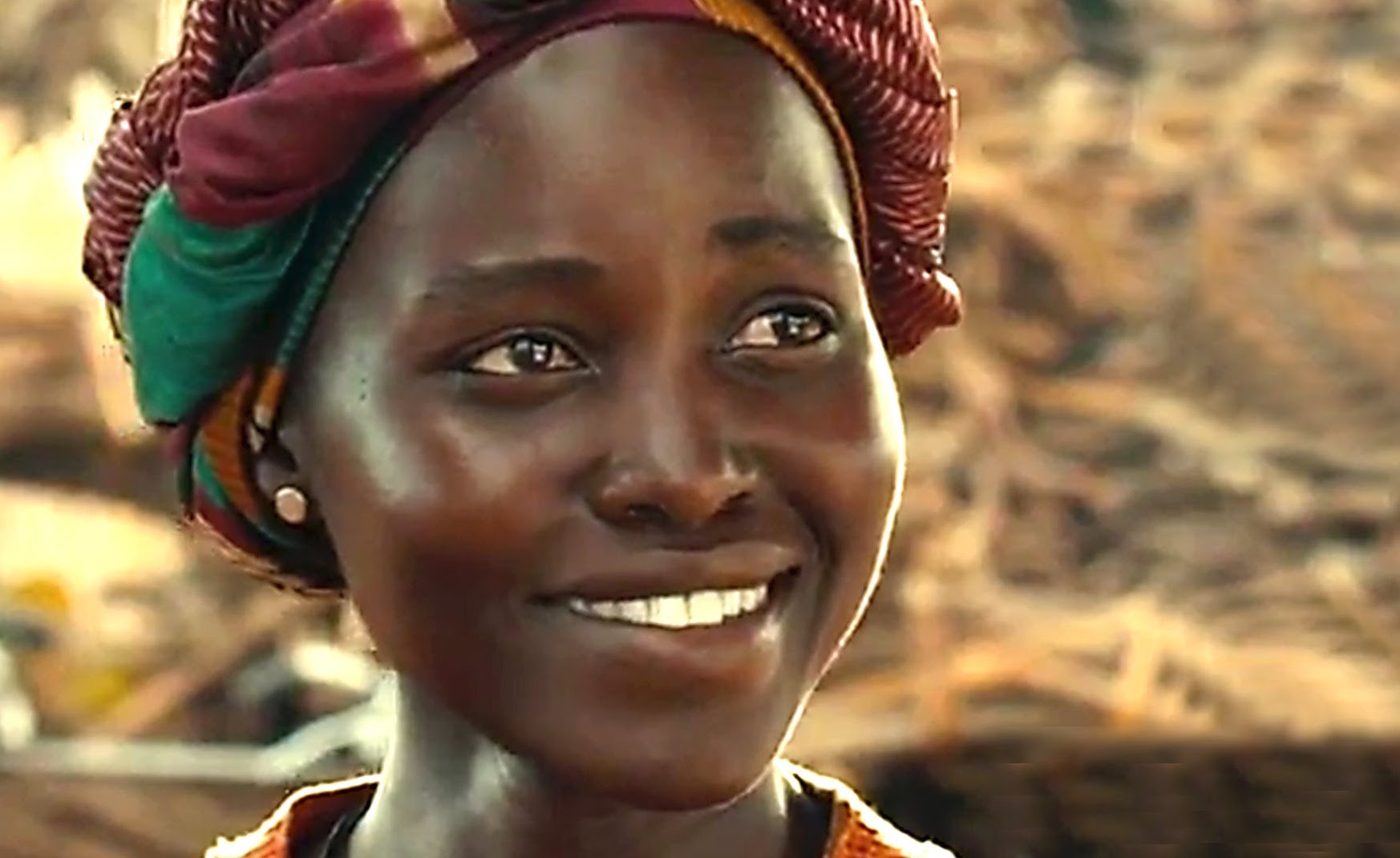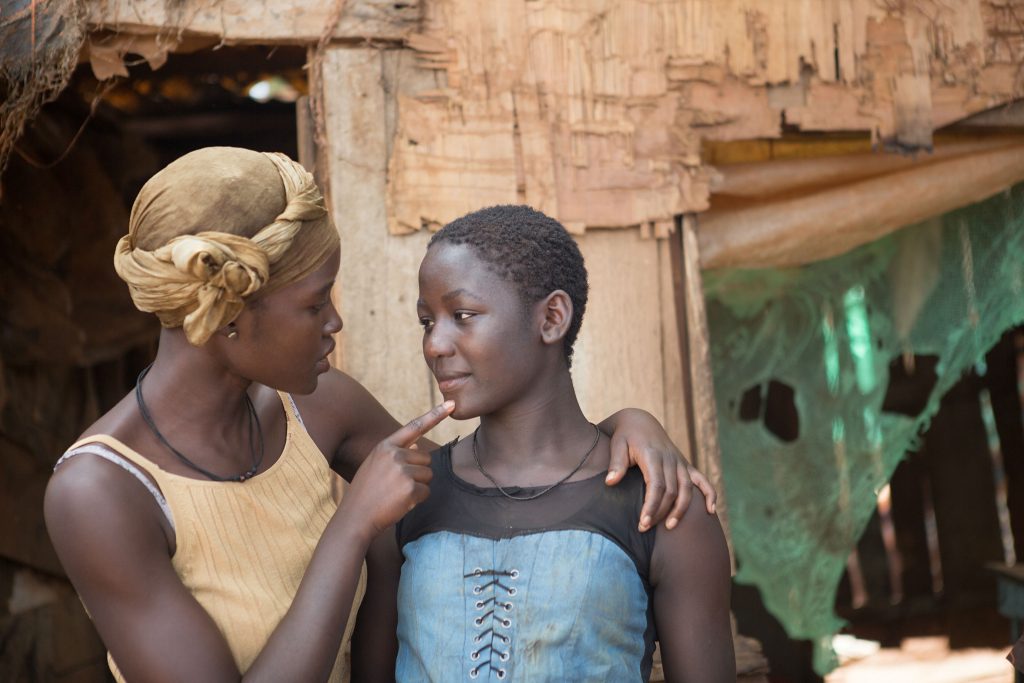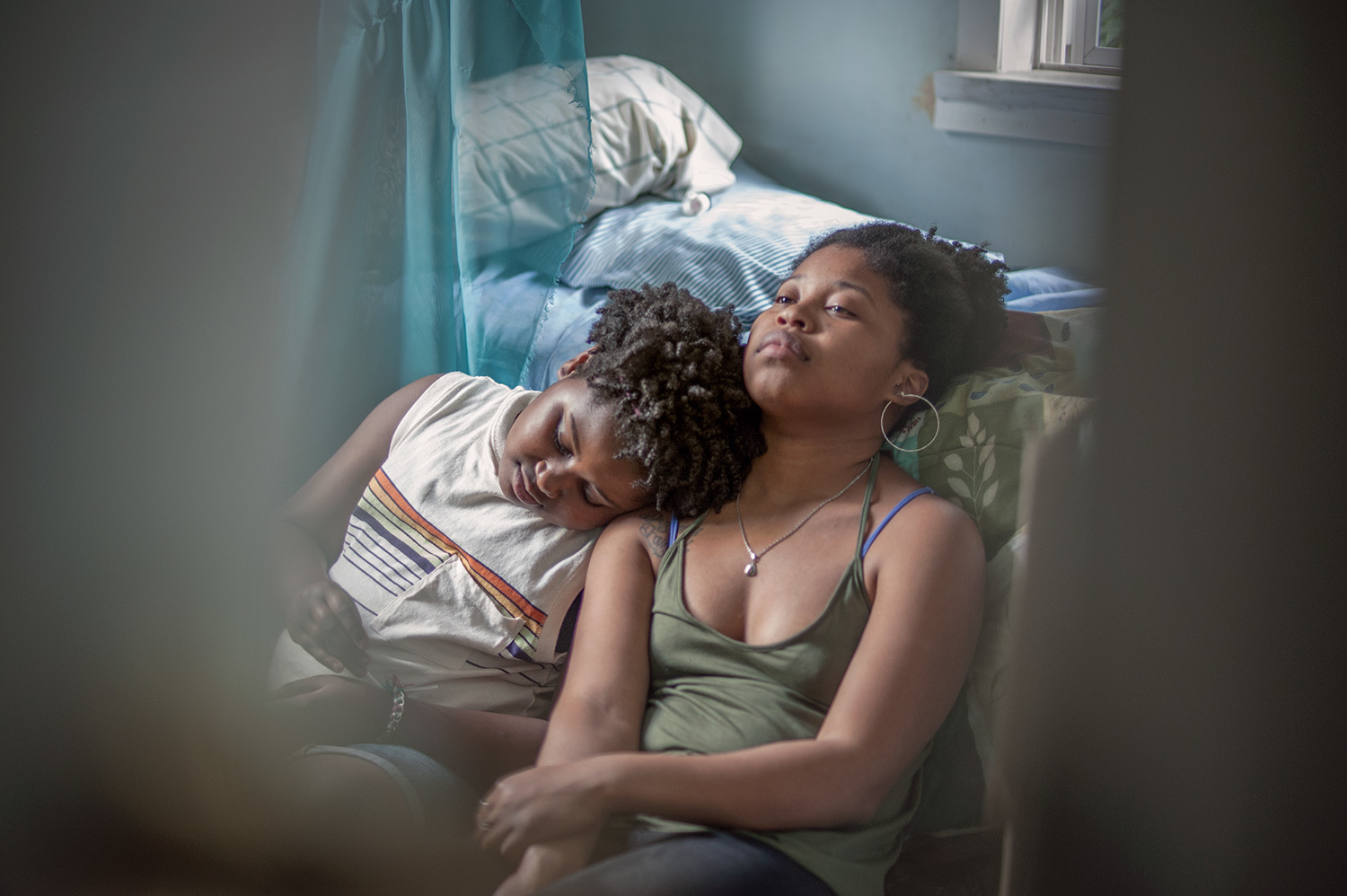

Interview: QUEEN OF KATWE’S Lupita Nyong’o on self-doubt, equality, and the importance of dreams
Lupin Nyong’o is definitely what they call in Queen of Katwe, “Queening”. Any young lady looking to find inspiration on their path towards being an actor, or any job about which they feel passionate, would do well to pay close attention to the career and attitude of the co-star of Disney’s upcoming film Queen of Katwe and Oscar winner. Queen of Katwe director Mira Nair has known about the rising star for quite some time. Her husband and Nyong’o’s father have been friends for decades, so she was aware of the young lady from her early youth. It wasn’t until Nyong’o was searching for places to work in film production as an undergraduate, that her father told her he knew the director. Nyong’o subsequently worked for her as an intern, both in New York and at her film school Maisha Film Lab in Kampala. When Nair took on the story of chess prodigy Phiona Mutesi, recruiting screenwriter William Wheeler, she always had Lupita Nyong’o in mind to play Phiona’s mother Harriet, and the role was written for her. When we spoke to Lupita Nyong’o she revealed her motivation for taking on the role:
“Playing a mother was very challenging and that’s the reason why I took this role. I was so surprised when I got the script that Mira was asking me to be the mother, who had her first child at the age of 15. She’s a teen mom and struggling to keep her family together, and I don’t have any children and what do I know about taking care of 4? I love that kind of challenge, something that asks me to do something completely different from the thing i’d just done. This is the movie I shot right after Star Wars. I love how uplifting the story is and how inspiring and I was keen to play someone who sees the world entirely differently than I do. Someone who is afraid of dreams and quite suspicious of them and fearful of how they can easily lead to disappointment.”
She talked about how she got connected to Mira and started working with her:
I actually didn’t know Mira. I met her when I was an undergrad. My parents have been friends, my dad had gone to school in Uganda, but I never met her. It wasn’t until I was an undergrad and looking for an internship trying to figure out what I wanted to do in the film industry that I asked my dad whether he knew anyone that I could talk to, and he said “oh! a very good friend of mine is married to a filmmaker Mira Nair, have you heard of her?” and I thought, “I can’t believe that! Because i’d watched her films and I was shocked and said why didn’t you tell me sooner?” Of course I went immediately to reach out and try to get an internship with her in New York, and I did, and that’s where our relationship started and I was a post-production intern on her film The Namesake. I got her a lot of tea as she edited the film. She had just founded the Maisha Film Lab that I then went to work in as a production coordinator. That was ten years ago, and now I’m in her film. She’s a director that i’ve always admired and respected and i’ve been dying to work with her so when she emailed me and said “I wrote this with you in mind”, it was a dream come true. Then to learn it’s something so homegrown in a place where she’s lived for over 27 years, a place she loves so much and a story out of Africa we don’t get to see very often especially not with this kind of platform, I mean it was a no-brainer. I had to do it.
Lupita Nyong’o credits her parents a great deal for her success. She spoke of their unflagging support, and the power of their guidance.
My dad used to act himself and so he used to recite Shakespeare to us. He told us stories very animatedly. My mom made us create these dream charts for ourselves over the summer. It felt like homework then but now I really appreciate it, because she was asking us to think of our lives in the short, mid, and longterm and think what we’d want for ourselves and she had us cutting out from magazines these images and quotes that would represent everything and then she’d put them on the wall where we could see them and every day as we went to school. It taught me to dream out loud and how to be deliberate about creating a vision for yourself.
Nyong’o may have already won an Oscar, but she herself says that doesn’t erase the self-doubt inherent to each time she is beginning a new role:
Because i’m an actor, i’m constantly facing beginning again. It doesn’t matter how successful the one before was, this is totally different. I’m a beginner and i have to apply my craft to a new process and it’s about gaining the confidence within that new process. It always begins with self-doubt. But what I have learned is to not let self-doubt stop me from trying to do the thing i’m trying to do. It’s just one of the hurdles you have to jump over, and if it appears again on the horizon, you jump over it again. It’s a thing to work through rather than a thing to stop you from being able to move forward.
When asked what inspires her choices as an actor, she was clear that she based her selections on what she calls her inner compass, regardless of how far removed from her own experience the roles may be:
I always have to get back to why I am doing what I do as an actor. It’s not for the accolades, It’s for the love of the art, it’s for the love of the thing that I do, which is investigating human nature, and that means allowing myself to fail. Because failure, like we learn in Queen of Katwe, is not the end of the road. It’s just a stop on a path to something else. I’m just more powerful and useful when I feel passionate about the stories I tell, so if I can continue to only tell those stories, I think it’s better for everyone involved.
Recently Nyong’o had a starring role on Broadway in the critically acclaimed play Eclipsed, which was written by Danai Gurira who is both a writer and actress, starring as Michonne in The Walking Dead. The play was also directed by a woman, Liesl Tommy. She was very eloquent about the importance of equality in gender, and working for diversity on the stage and in film:
This year has been a very female empowering year for me, I’ve worked with two amazing female directors. One of Broadway and of course Mira Nair on this film. On the stage show Eclipsed we were all women and it was a fully female story and it was so empowering to be able to do that work and to be able to change the nature for a season of what was going on on Broadway being the very first all-woman creative team and all black as well! It’s been an empowering year. The world is better when we can realize the full potential of everyone in it.
To discriminate against someone on basis of gender, I just don’t understand it. I was very fortunate to be raised by a father who’s a feminist and he raised us to speak our minds and to pursue our dreams and our goals and to be productive. My father would say “it doesn’t matter if you’re a janitor, just be the best janitor there is.” Strive for greatness no matter what. That is my outlook and the way in which I choose to work with directors, both male or female. People who have the same philosophy, that your gender should not effect your productivity.

